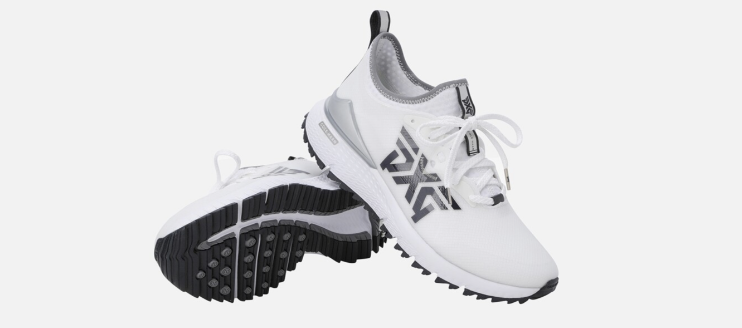Global shoe brands tied to toxic tannery conditions in India | News | Eco-Business

These concerns resonate with tannery workers like Shashikala, who packs shoes at KH Exports, a supplier to H&M. “Inspectors only check the products; they don’t talk to us,” she says. “The smell in the factory is always unbearable, and I suffer from allergies on my hands and face.”
Unlike many of its competitors, H&M publishes supplier lists and details on union representation – something those pushing for change say is essential for accountability.
KH Exports, which is both a tannery and a manufacturer of leather goods, is listed among the tanneries with a high pollution potential by the TNPCB, and Dialogue Earth was told it has only one union representative for every 1,000 to 2,000 workers. At the same time, the Leather Working Group (LWG), a global standards organisation, rates it as a Gold standard tannery. That rating requires adherence to the highest environmental, social and traceability standards, including compliance with labour laws and provision of safe working conditions.
“This situation appears inconsistent with what the LWG Gold standard demands,” says a labour rights representative.
H&M told Dialogue Earth that KH Export factories in India supplying the company were following its audit programme and “showing compliance” as of 2024. It added that all of the tanneries it used in India were audited in 2024, but did not provide further details. LWG and KH Exports’ auditors never replied to Dialogue Earth’s request for comment.
EU due diligence: Promises versus reality
The 2024 EU Directive on Corporate Sustainability Due Diligence requires large companies to address human rights and environmental risks across their supply chains. By 2026, EU member states must incorporate this legislation into their national laws.
“Traceability is crucial for due diligence,” says Emma Thomson, of NGO Global Canopy, a UK-registered non-profit advocating for corporate sustainability and environmental protection. “Companies need to be more transparent, disclosing complaints, compliance processes, and suppliers’ lists; that’s the only way to push for change and better practices.”
However, most footwear and clothing companies still do not publish the names of their suppliers.
Germany, meanwhile, became the first EU country to implement its own Supply Chain Due Diligence Act in January 2023. The law requires German companies, and companies operating in Germany with at least 1,000 employees, to ensure both human-rights protections and the implementation of grievance mechanisms across their supply chains. They must also submit annual reports to the German Federal Office for Economic Affairs and Export Control (BAFA).
Sanctions for non-compliant companies are set to begin on 1 January 2026, but the legal requirement for annual reporting is already in place. This means that German companies like Deichmann or Gabor Shoes, as well as international brands such as Inditex and H&M, should comply with this regulation. As of December 2024, none of these companies had provided the annual report to BAFA as required by German law.
Two years after the German law’s introduction, the impact in Tamil Nadu remains unclear. “Nothing has reached the field yet,” comments one resident.
This disconnect between European due diligence frameworks and on-the-ground reality is evident in the experiences of workers like Mala, who works at a tannery belonging to Tata International, a major firm with tanneries in Tamil Nadu that supply the likes of Deichmann, Gabor and H&M.
“My face was smooth before,” she tells Dialogue Earth, pointing to black patches on her cheeks she says are caused by prolonged exposure to tannery chemicals. Mala says colleagues also suffer from health issues due to this exposure. Although she earns slightly above the regional minimum wage, Mala says her income still doesn’t provide a decent standard of living. Her experience is in sharp contrast to Tata International’s status as an LWG Gold rated tannery.
LWG and Tata International auditors did not respond to Dialogue Earth’s questions about workers allegedly being exposed to tannery chemicals for prolonged periods of time.
Gabor Shoes did not reply to requests for comment. In an email exchange, Deichmann insisted that its code of conduct ensures respect for workers throughout its supply chain and said it had not received any “relevant information” through its internal grievance mechanisms. The company cited posters in local languages displayed at supplier factories informing workers of their rights, with targeted training programmes encouraging employees to speak up.
Berndt Hinzmann, senior policy advisor at the German NGO Inkota, explains the problem: “Systems are in place, especially indictment hearings, to address these issues. However, those affected don’t use them because they fear that speaking out will have direct negative consequences or backlash, influencing how the issue is handled by existing grievance and primary systems.”
None of the 200-plus workers interviewed by Inkota in 2024 in the Indian leather and footwear industry were even aware of any grievance mechanism linked to the brand they. The absence of a grievance mechanism would be a direct violation of German law, as would a lack of action to prevent or end any human-rights abuses. The German government did not respond to a request for comment on this.
A real change
The Ranipet Leather Tannery Allied Labourers Protection Forum says: “Key reforms must include fair wages, workplace safety and access to essential social-security benefits such as health insurance and maternity leave.”
“Regulations in the Indian leather sector have historically been shaped by the requirements of clients in Europe and the United States,” explains Arpita Mukherjee from the Indian Council for Research on International Economic Relations (ICRIER).
Alongside the EU’s Corporate Sustainability Due Diligence Directive, she points to the 2023 European Deforestation Regulation, which comes into force on 30 December for larger companies. Under this regulation, products linked to deforestation, including leather, must demonstrate that their supply chain is deforestation-free to enter the EU market; otherwise, they may face fines of up to 4 per cent of their turnover.
Yet, as Thomson cautions, “cattle supply chains are notoriously opaque and complex. A single hide may pass through five to seven farms before reaching the first stage of the supply chain.”
Although she welcomes the new EU directives, Mukherjee is sceptical that they will bring about the change needed. “In theory, the directives are good, but we are now in a situation where the rules exist, while the guidelines and enforcement mechanisms are still unclear.”
Local voices argue that the real issue is a lack of political will. “At the end of the day, it all comes down to money,” says a spokesperson from the local organisation Thendral Movement.
This view is echoed by Mukherjee. “For too long, multinational companies have increased profits while ignoring local impacts and working conditions,” she concludes.
This article was supported by Journalismfund Europe.
This article was originally published on Dialogue Earth under a Creative Commons licence.
link





